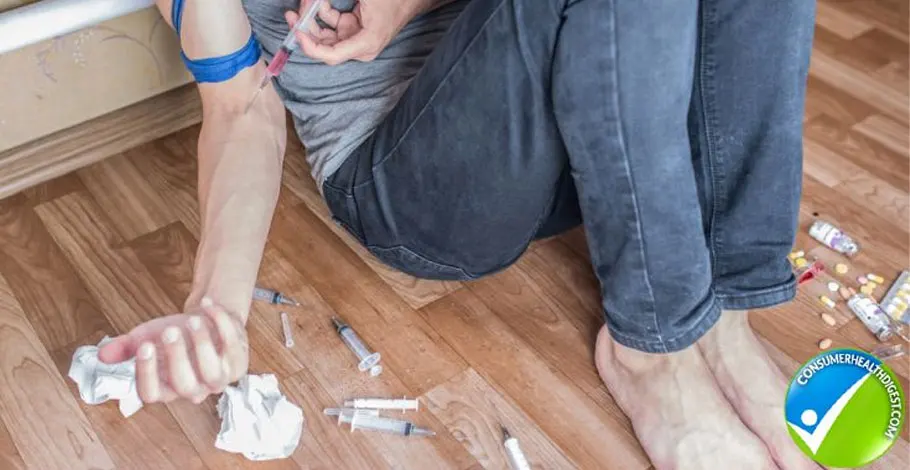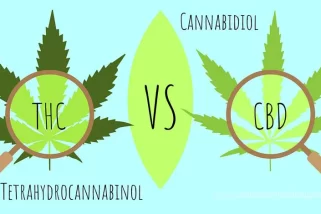In This Article
Recently we discussed the deadly opioid crisis, at a time when there was little evidence to suggest that the tide is turning. Now, things are starting to look different, with a more upbeat tone in the media.

So, what are the latest facts on the ground concerning America’s war on drugs and is there reason for this optimism?
A Serious Shift in Drug Legislation:
The president signed a new bi-partisan opioid bill into law. Some dubbed it the $6Billion bill, which is no doubt due to the high levels of funding that has been allocated to help drive the change.
There was almost 100% agreement on this cross-party legislation, which shows just how determined the government is to turn the tide on this.
Now, drug addiction will be treated as seriously as any other major life-threatening disease, which provides much-needed equality.
The Most Significant Impact this Will Have on US society
According to Kevin B. O'Reilly, editor at the American Medical Association, the new law will help deal with the epidemic in many ways: New programs will be launched to prevent and treat SUD’s [1].
This was previously near impossible due to various barriers – now the law requires government institutions oversee this.
CDC grants are now authorized to improve prescription monitoring – which will essentially act as a safety net to detect problems earlier. Loan repayment for SUD professionals will ensure that more capable hands are available for this worthy cause.
Law enforcement will also zoom in on illicit opioids – aimed at reducing deaths caused by heroin and illicit fentanyl.
Thanks to additional funding, nonaddictive painkillers will become the next focus for university research.
The Scale of the Problem Means It is Not Yet a Time for Complacency:

How To Solve The Opioid Crisis?
Regardless of this positive sentiment and bi-partisan co-operation to find a new way forward, the challenge is still significant.
48 000 Opioid deaths were reported in 2017 alone.
Reports from the NPR claim this number is as high as 70 000. Just walk the streets of San Francisco and witness the number of people experiencing crack withdrawal. Visit charitable rehabs – and notice their high occupancy rates [2].
According to the CDC, 70% The Midwestern region witnessed opioid overdoses increase 70% from July 2016 through September 2017, from which we deduce that the US witnessed a marginal reduction from peak levels [3].
A key issue is that as opioid prescriptions increased, there was no increase (or parity) when levels of treatment prescriptions for addiction. The new legislation is clearly aimed at addressing this issue through monitoring activities at various levels, backed by seemingly high levels of funding.
A cautiously optimistic view is that yes, incremental improvements are being made. The legislative framework is now in place to drive real change – starting with systemic problems, which we will discuss next.
Can Key Players in the Pharmaceutical Industry Re-Invent Their Business Model?
This is the first issue to think of when fixing a broken system. A smart government will strike a balance to help industries remain profitable – and citizens to be healthier.
Let’s explain this in depth.
It is possible to argue that another form of addiction is involved here: The addiction to big pharma to money. It is no secret that when millions of Americans are addicted to prescription medication, it creates vast recurring revenues for this industry.
Whether the industry should face a loss, or re-invent themselves to provide other nonaddictive alternatives, is a complex discussion – one that is already happening in relevant influencer circles.
Of the many ways in which the industry can re-invent itself, one is to embrace new trends, spurred by relaxed legislation in the alternative health market.
Big Trends, Big Decisions. Cannabidiol / CBD is Here to Stay:
In the infographic below, it is interesting to note that cannabidiol / CBD is used to combat many of the symptoms that are currently treated with highly addictive drugs (including prescription opioids).
Notice particularly it deals with drug addiction, anxiety, and depression With this in mind, it may seem like a credible replacement for problematic drugs.

This raises a few questions:
Why did big pharma not yet embrace the trend? Amazon sells CBD, smaller retailers are drop shipping CBD all around the world, but big pharmaceutical retailers shy away from this.
If thousands of Doctors prescribe CBD worldwide, why is medical aid so slow to approve it as part of standard prescription drugs?
Should the US help fund more research into options such as Cannabidiol, CBD, Ibogaine other potential alternatives to build a stronger case for pharmaceutical giants and the FDA to consider?
What big decisions are there to be made then? If the government can provide funding for accelerated research into alternative treatment options, there is no need for industries to lose out. Rather, they can re-invent to become less harmful to society.
It can easily be argued that as opioids are in retreat, the pharmaceutical industry can turn to medical CBD/ cannabidiol to provide a nonaddictive alternative that can provide equal levels of revenue.
On the one hand, we are witnessing an outgoing trend of opioids – and that is what legislation is aimed at.
On the other hand, there is a rising trend in the CBD/ Cannabidiol market – also due to new legislation that is responsible for the creation of a new phenomenon.
Solution to Opioid Crisis - Conclusion
New research can empower big pharma to embrace new trends and become part of the solution to create better societies: not only in the US, but globally.
As opioids are in retreat, other big trends such as CBD/cannabidiol may well turn out to provide alternatives that represent a win-win for consumers and the industry.
Where there is a will, there is a way.
The latest round of opioid legislation should create the will among industry leaders to promote better alternatives.
3 Sources
We review published medical research in respected scientific journals to arrive at our conclusions about a product or health topic. This ensures the highest standard of scientific accuracy.
[1] 10 ways the new opioids law could help address the epidemic: https://www.ama-assn.org/delivering-care/overdose-epidemic/10-ways-new-opioids-law-could-help-address-epidemic[2] How to Detox from Crack: Withdrawals, Symptoms and Effects: https://clearskyibogaine.com/how-to-detox-from-crack/
[3] Opioid Overdoses Treated in Emergency Departments: https://www.cdc.gov/vitalsigns/pdf/2018-03-vitalsigns.pdf







 This article changed my life!
This article changed my life! This article was informative.
This article was informative. I have a medical question.
I have a medical question.
 This article contains incorrect information.
This article contains incorrect information. This article doesn’t have the information I’m looking for.
This article doesn’t have the information I’m looking for.